Petrochemicals Synthetic Fabrics Textiles 01-04-2020 - Arhive
Petrochemicals Synthetic Fabrics Textiles
Crude Oil Prices Trend

-Europe and the US refuse cheap Saudi oil
Many oil refineries in the US and Europe are refusing additional Arabian oil, which Riyadh offers at great discounts, Expert writes.
The outcome of the price war launched by the Saudis to regain the lost market share in three years of oil production (especially in Europe) and to squeeze American shale oil out of it is now a big question, writes the Wall Street Journal (WSJ), citing its sources in Er Riyadh and oil dealers.
Saudi arabian oil Co. announced on March 9 a decrease in oil prices and a planned increase in its production in April by 2.5 million barrels per day. Saudi Arabia (KSA) launched a price war after Russia refused to renew the OPEC + agreement on the terms of Riyadh.

-Henkel will reduce fossil-based virgin plastic by 50 percent
Company has set further ambitious packaging targets for 2025 to promote a circular economy Petrochemicals Synthetic Fabrics Textiles
Henkel is stepping up its commitment for sustainability and has set further ambitious packaging targets for 2025 to promote a circular economy. By then, 100 percent of Henkel’s packaging will be recyclable or reusable* and the company will reduce fossil-based virgin plastics by 50 percent in its consumer goods packaging. Additionally, Henkel wants to contribute to avoiding plastic waste being disposed in the environment.
As a global consumer goods company, Henkel wants to foster a circular economy – meaning that packaging materials remain in economic cycles as long as possible and do not end up in the environment. Henkel has already made many advances in the field of sustainable packaging. For example, the company further increased the share of recycled plastic in its packaging and a number of Henkel’s packaging already consists of 100 percent recycled material. With its new ambitious packaging strategy, Henkel strives to use material from sustainable sources and develop smart designs to close the loop.
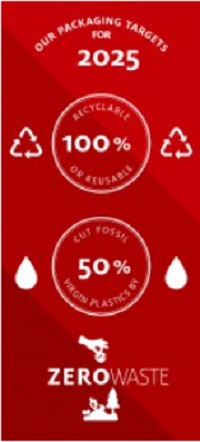
-How can nylon filament plants respond to the strong bears?
- A large number of orders cancelled for textiles and apparels, the influence will gradually reflect in NFY market
In early March, the COVID-19 pandemic in areas outside China developed rapidly, and many countries entered an outbreak period. In mid-March, in order to control the pandemic, many countries began to close the board, resulting in large number of China’s textile and apparel export orders cancelled or postponed, especially in Europe and the America. It was a great hit on cloth and apparel enterprises, who were still producing to deliver the export orders. Moreover, China local demand was still in the recovery, and was no way to fill up the vacancy of the export orders. Petrochemicals Synthetic Fabrics Textiles
That is why, when nylon filament price is already at a historically low, the cloth mills still do not restock to build stocks. High risks and low opportunities in short are the main reason for the bleak trading of nylon textile filament.
Short-term demand has shrunk sharply, and some cloth mills may reduce production. It is expected that beginning April it will clearly reflect in the consumption and purchase of NFY, which means that nylon filament mill may face a sudden drop in new orders after they have finished producing and delivering previous order by the end of March.
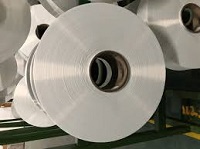
Record times to create and certify materials for use in the hospital.
First 5,000 gowns donated to the Pope John XXIII hospital
Gowns, headgear and shoes to protect doctors, nurses and health personnel in the daily battles against Coronavirus: RadiciGroup with its division specialized in the production of a high performance non-woven fabric has given birth to a project that expresses the flexibility and capacity of Bergamo to respond the most complex challenges.
«We are used to producing high performance materials – underlined Angelo Radici, President of RadiciGroup – and we asked ourselves how we could be of help in this emergency. We have thus involved other companies in the area who immediately took sides to develop a credible and certified supply chain and meet the need for protection of our doctors ».
RadiciGroup already has over 10 thousand meters of fabric ready, for which coupling tests have already been carried out with a protective film made by the Bergamo-based company Plastik. Petrochemicals Synthetic Fabrics Textiles
“We have long collaborated with RadiciGroup – said Gianangelo Cattaneo, President of Plastik – in which we recognize an authentic working partner. When they contacted us for this project, the answer was immediately “yes”: a concrete action by the Bergamo companies to respond to an emergency in the area. Our task was to combine the RadiciGroup non-woven fabric with a special product that made it antibacterial and breathable and therefore resistant to infectious agents ».
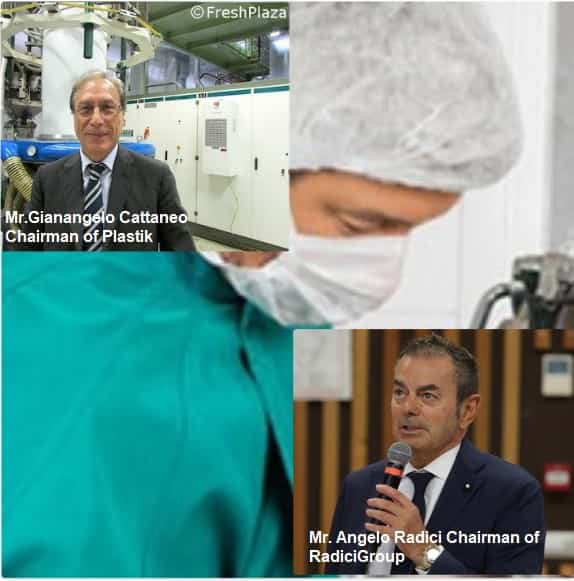
-Turkish polyester-producing firm increases capacity to meet coronavirus-aggravated demand
A Turkish company based in the province of Adana in southern Turkey that produces 700,000 tons of polyester annually, mostly for the health and hygiene sectors, has increased its orders by 20% amid the growing need for its products due to the coronavirus pandemic. Petrochemicals Synthetic Fabrics Textiles
Some 60% of the SASA Polyester Industry’s manufactured goods are used in health, hygiene and packaging products. The company’s general manager, İrfan Başkır, told Anadolu Agency (AA) Monday that this rate had increased considerably due to the effect of the recent COVID-19 outbreak.
“We have received additional orders due to the pandemic, with an increase of approximately 20% from both our domestic and international customers,” he said.
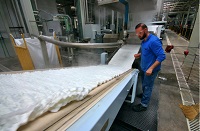
-Asian aromatics market to continue the weakness
Asian benzene prices slumped to an 11-year low of $318/mt FOB Korea, and 2,930yuan/mt in China local market last Friday. Benzene market fundamentals were heavily weighed by weakening demand particularly form styrene monomer plants and a closed Korea-US arbitrage window. Petrochemicals Synthetic Fabrics Textiles
Styrene market continued its sharp decline in East China, along with the drop in benzene market. However, production margins showed limited improved. Operating rate of styrene units decreased to 63.3% with the turnarounds of Abel and New Solar, which could lend some supports to the market. However, supports from downstream markets were limited. In short term, the market is expected to keep rangebound. Eyes could rest on the pandemic situation outside China, macro environment & crude oil and styrene inventory in East China main ports.
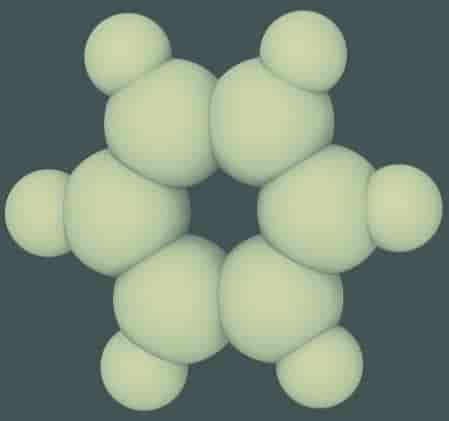
-EDANA Joins Circular Plastic Alliance
group has goal of a circular economy for plastics and increasing the use of recycled plastics in new products
EDANA, the association representing the nonwovens and related industries, has joined the Circular Plastics Alliance, endorsing a vision to deliver on the circular economy for plastics and substantially increase the use of recycled plastics in new products. By 2025 at least 10 million tons of recycled plastics should find their way into products and packaging in Europe each year. Petrochemicals Synthetic Fabrics Textiles
In 2018, on behalf of the nonwoven producers amongst its membership, representing more than 85% of the nonwoven production in the EU, EDANA issued a pledge to significantly increase the use of recycled PET (rPET) in nonwovens. EDANA now furthers its commitment, offering it expertise and unique supply chain network to the alliance of 190 other private and public stakeholders to boost the EU market for recycled plastics.

-Europe PP consumption for automotive set to be gloomy for 2020
The European transportation sector accounted for about 1.1m tonnes of polypropylene (PP) used for manufacturing of cars and car parts, trucks and other vehicles, according to preliminary estimates by ICIS Analytics, using the ICIS Supply & Demand Database.
The automotive sector has been notoriously poor, and events in 2020 have led to expectations of further weakening.
Negative growth for PP demand in this sector was already expected in 2020, well before the spread of the pandemic. Petrochemicals Synthetic Fabrics Textiles
In the EU, the contraction of passenger car sales was expected to generate a drop in PP consumption by at least 20,000 tonnes year on year in 2020.
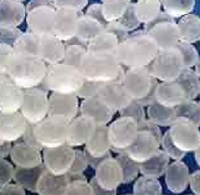
-Germany’s chems employment resilient on union protection but short-time work impacting downstream
Employment in the German chemicals sector remains resilient and, given its importance in the supply chain and connection to the health sector, provisions are being made for workers in the industry, according to corporates and the main chemical union.
The German chemicals trade group VCI released a statement at the end of last week along with the country’s mining, chemistry, and energy trade union (IG BCE), which includes chemicals workers, saying what measures would be put in place during the coronavirus pandemic. Petrochemicals Synthetic Fabrics Textiles
These currently include allowing employees to get to and from work despite any imposed curfews, preserving the supply of raw materials, and ensuring transport for products to provide protection for the 465,000 jobs in the nation’s chemical and pharmaceutical industry.
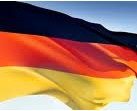
-European Recycling Markets Reel from Coronavirus
Changes in consumer behavior, the reduced cost of virgin materials, logistics disruptions and other trends driven by COVID-19 may have a lasting effect on the European recycling industry.
Concerns over the long-term impact of the coronavirus outbreak on key European recycling markets sharply escalated last week following the adoption of further containment measures across the continent. Petrochemicals Synthetic Fabrics Textiles
Sources are particularly worried about limited volumes entering collection systems, logistics disruptions, potential downstream demand losses in non-packaging sectors, buyers abandoning sustainability measures, and a reduction in necessary long-term investment.

-Venezuela hails continued Russian support despite Rosneft exit
Rosneft, Russia’s largest state-owned oil company, announces the cessation of operations in Venezuela and the sale of assets related to activities in this country due to US sanctions, Interfax reported .
“Today, Rosneft entered into an agreement with a company 100% owned by the government of the Russian Federation on the sale of shares and termination of its participation in all projects in Venezuela, including shares in the oil producing companies Petromonagas, Petroperija, Boqueron, Petromiranda and Petrovictoria, in oilfield service enterprises and trading operations “, the Russian state company said in a statement.
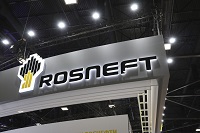
Petrochemicals Synthetic Fabrics Textiles
